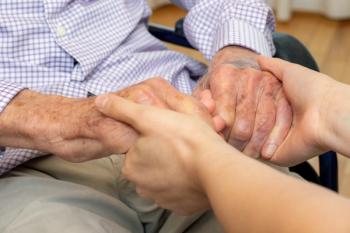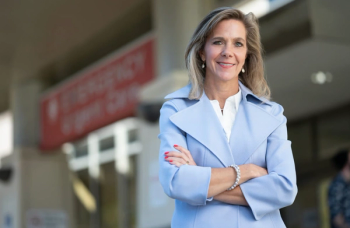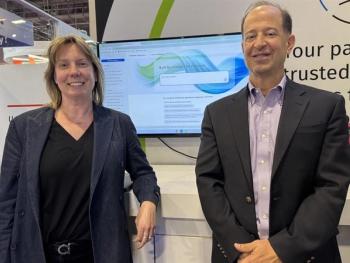
Telehealth Might Democratize Genetic Counseling (and Testing)
When offered remote counseling, patients were far more likely to be tested...and to have their potentially-risky variants identified.
As genetic testing creeps from medical luxury to standard-of-care practice, there are bound to be gaps. Major medical centers and academic institutions might have the staff to both test and educate patients about the insights—like indications of elevated cancer risk—that can be found within their genetic code. Many community-based medical centers, however, often don’t have that ability.
Telehealth affords them an opportunity to expand use of the important practice. A new study from University of Pennsylvania researchers found that, when offered the ability to receive counseling via remote phone or video chat, vastly more patients were willing to be tested.
>>>READ:
The randomized control trial, led by Angela R. Bradbury, MD, split 115 genetic testing candidates into 2 groups: A cohort that was offered a remote counseling session and a control group that was just offered information on the benefits of the testing and the opportunity to travel to their provider to receive counseling.
More than 75% of the patients who were offered video or phone counseling accepted, and 55% chose to go ahead with testing. From that group, the team was able to identify 4 people carrying genetic indicators of cancer, which could help influence future screening and preventative care.
In the usual care group, on the other hand, only 17% of the patients were tested, and no carriers were identified. Somewhat surprisingly, only 2 of the 36 patients opted to complete standard genetic counseling—but a few more underwent testing without it.
"The data confirm that some people in community practices are getting testing without going through counseling first, and previous studies have shown that patients have lower levels of knowledge and lower satisfaction when that happens," Bradbury said.
Education is important when it comes to genetic testing, because patients often don’t have perspective on the gravity of a genetic indicator: Possessing a certain mutation doesn’t mean that a patient will inevitable get cancer, it means they have something in common with a lot of people who have. Overreaction due to lack of perspective can cause unnecessary emotional distress; conversely, it can lead patients to ignore a potentially important risk.
Even though more than half of the patients who received the remote counseling went ahead with testing, Bradbury thinks that number should be higher. “It shows we still have work to do to help equip patients with this information, which can be life-saving in some cases."
Still, she believes, the numbers in her study
"The data definitively show the impact of remote genetic services,” she said. “It's clear from this study that this telemedicine approach improves on what community practices can do on their own.”
Bradbury will present the findings this week at the American Society of Clinical Oncology conference in Chicago, Illinois.
Related Coverage:








































